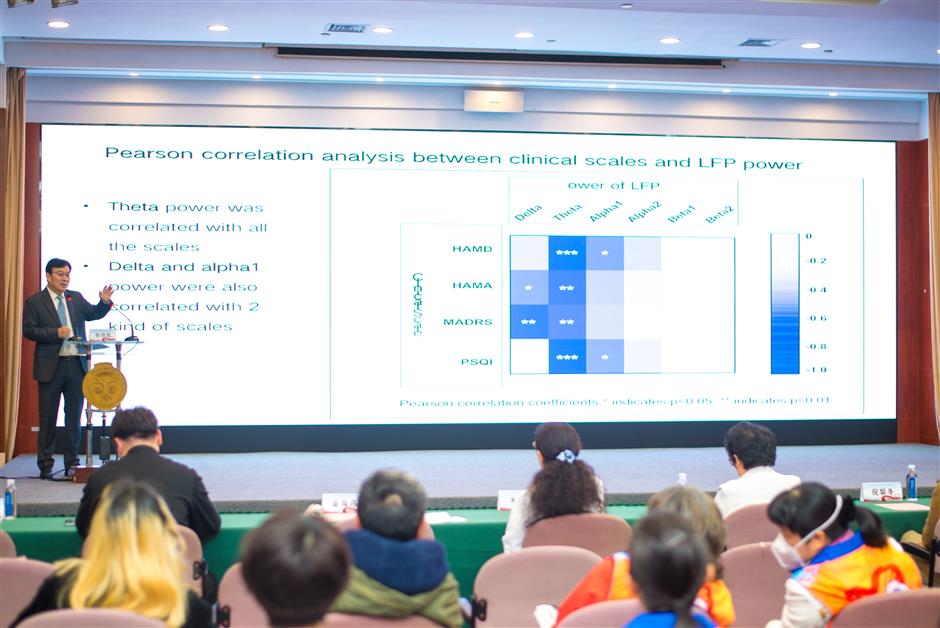Brain-computer interface center treats patients with serious depression
Most patients with serious depression have seen improvement in their condition after participating in a clinical trial at the brain-computer interface center of Ruijin Hospital, the only such center in the nation, doctors said on Thursday.
Since its establishment in December, 2020, the center kicked off a research and clinical trial on treatment-resistant depression.
Based on deep brain stimulation, which involves the insertion of electrodes into targeted areas of the brain to treat diseases like depression, Parkinson's disease and obsessive-compulsive disorder, the new center uses the electrodes to record the brainwaves of patients to help look for depression biomarkers, which can tell doctors when the patients are depressed and when the situation has eased.
"After knowing these biomarkers, we can develop a kind of digital therapy, which can automatically identify such changes and do relevant adjustments to help control the mental status of the patient," said Dr Sun Bomin, director of Ruijin's functional neurosurgery department and director of the brain-computer interface center.
"Currently, our medics are making these adjustments based on patients' feedback."
So far, 23 patients with treatment-resistant depression have participated in the clinical trial, and over 60 percent said their situation has improved.
There are 350 million people suffering from depression in the world. Though the majority of patients can control or cure their condition through proper medication and psychological therapy.
About 20 to 30 percent won't respond to treatment or suffer repeated relapse. Such patients suffer from treatment-resistant depression and have very poor quality of life and even suicidal tendencies, experts said.
"So our new brain-computer interface center targets this part of patients and develops new therapies based on the study of the disease's mechanism, neural circuits, neurotransmitters, and biomarkers. So far, a batch of scientific articles have been published," Sun said.
"Depression is not merely a mental disorder. It is a complicated physical problem. Mental status is only one expression of the disease, so we need to have a profound understanding on the disease."
A 32-year-old man, who has been suffering from depression since middle school, said depression has brought great pain to his life.
"I can't feel happiness or sadness and feel no hope in life. I just want to lie on the bed for the entire day and have no interest in everything. I wasn't even able to cry when my grandmother passed away. I've tried various therapies and saw no improvement," said a man surnamed Wu, who participated in the clinical trial last year.
"After the DBS treatment, I have emotions again. I cried on the spot," he said. "My situation has improved so significantly and my doctors help adjust the stimulation power remotely, based on how I feel. I can work and have normal social life now. It's great."

Dr Sun Bomin, director of Ruijin's functional neurosurgery department and director of the brain-computer interface center, explains the data of clinical trials on patients with treatment-resistant depression.















